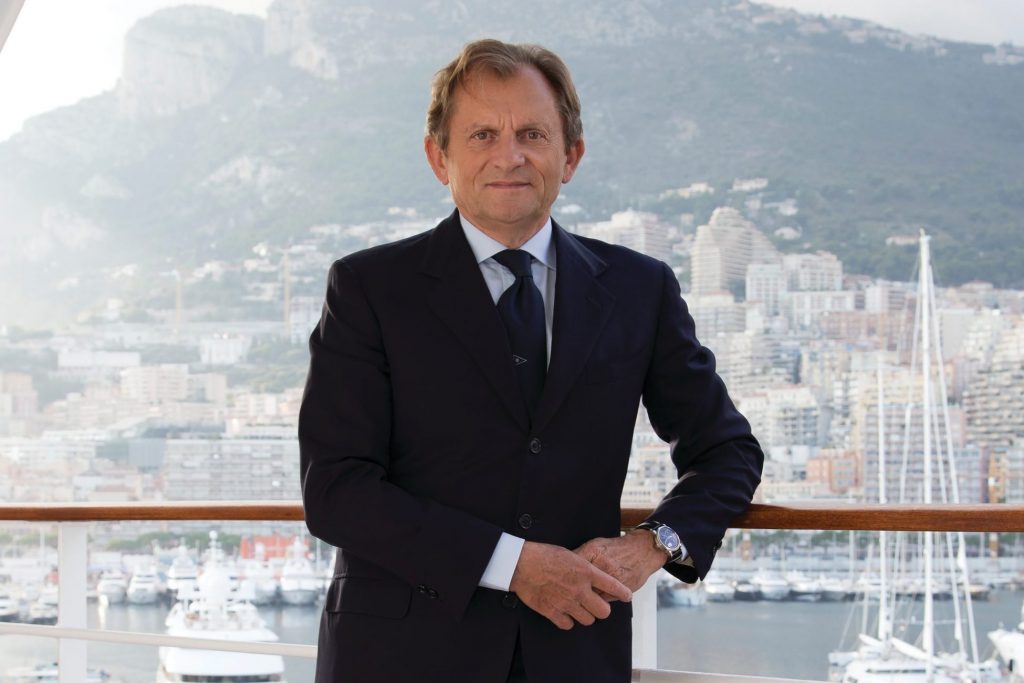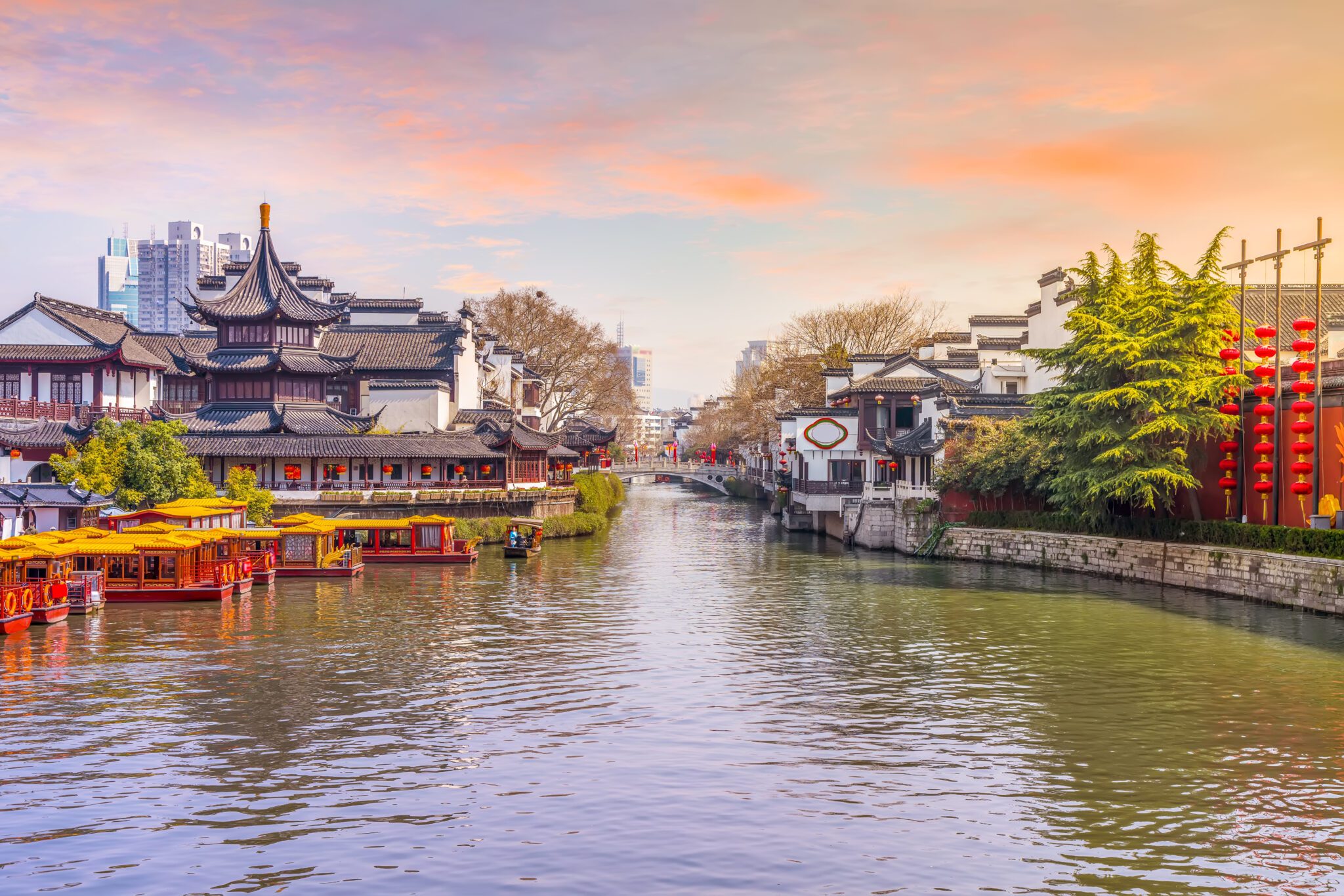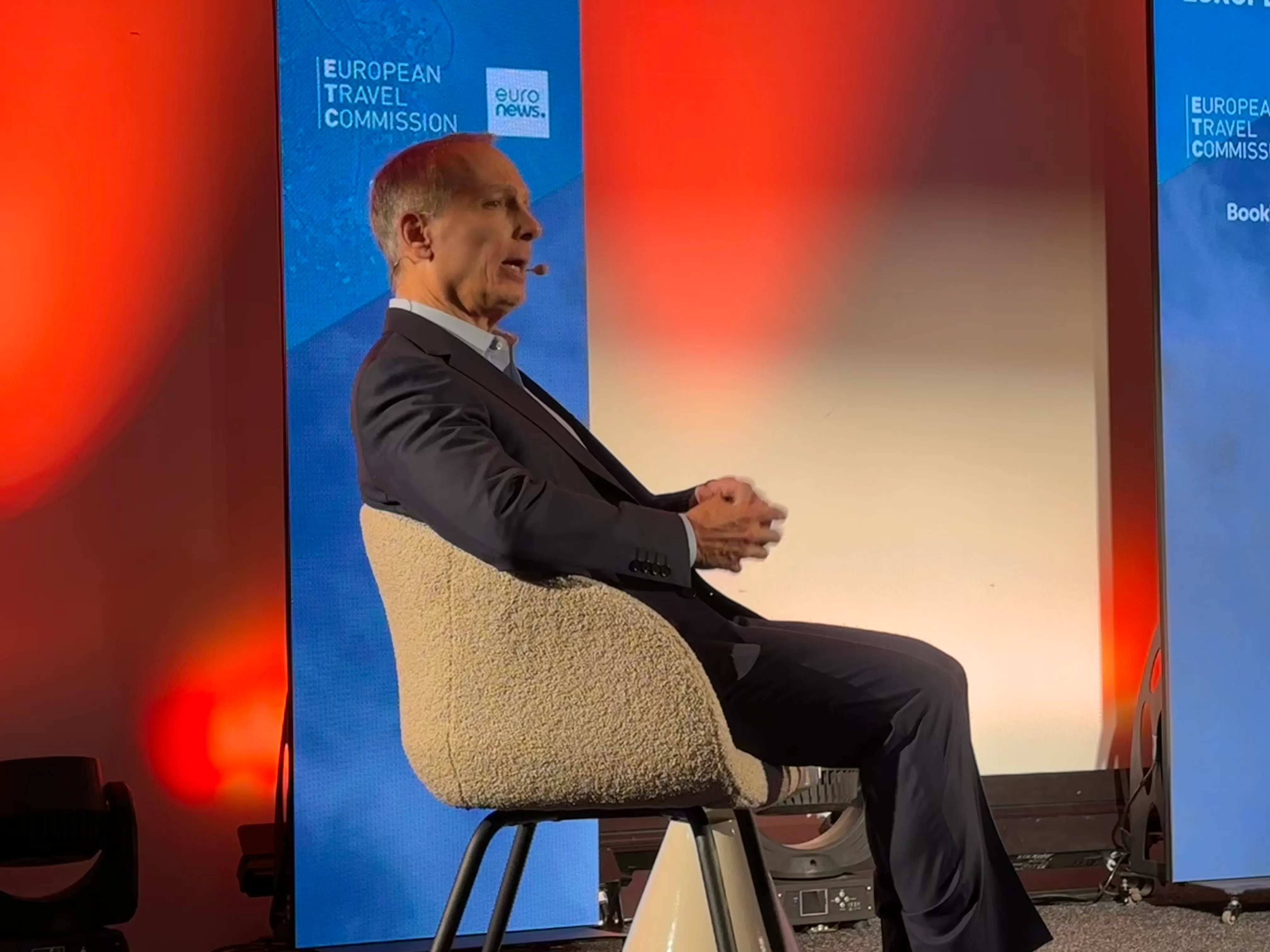Skift Forum Europe: Silversea CEO on the Evolution of Luxury Cruising

Skift Take
Roberto Martinoli has watched the cruise industry evolve over the past couple of decades as he worked in leadership roles at Costa Cruises, Carnival Cruise Line, and Norwegian Cruise Line.
As president and CEO of Monaco-based Silversea Cruises since September of 2016, he has had a front-row seat to that change: Royal Caribbean Cruises acquired a 67 percent stake in the luxury line last year for $1 billion, the industry’s biggest consolidation in years.
The acquisition was complete by the end of July, and the companies immediately announced an investment to upgrade Silversea’s fleet. Martinoli said the consolidation so far has been “a very rich exercise, for both sides.”
“Since the agreement, [Royal Caribbean] has been clear about the fact they want to preserve Silversea the way it is,” he said in an email. “No big changes, only improvements. We have gone through a best practices comparison with RCL on every area but product, marketing, and sales. We decided to avoid these areas, as they are the soul of our company and are very unique.”
Silversea has since announced an order for three new ships, part of a boom in the small-ship and expedition cruise niche.
“The surprising thing about this industry is that, despite the many brands and the many new ships to come, there is still space to grow for all of us,” Martinoli said in an email. “And this applies not only to the ultra-luxury and the expedition fields, which are showing encouraging signs of growth, but also to the mass market, as it seems there is still space for players to grow and differentiate themselves. In my opinion, differentiation will be key in the cruise industry in the coming years.”
Leading up to his appearance at Skift Forum Europe later this month, Martinoli weighed in on topics including Silversea’s majority acquisition by Royal Caribbean Cruises, the growth of luxury and expedition cruising, and what it’s like to work with his wife, who is Silversea’s chief marketing officer. He responded to written questions by email.
Editor’s Note: This interview has been edited for clarity and length.
Skift: It’s been less than a year since Royal Caribbean completed its purchase of a majority stake in Silversea. How has the transition been so far? Any surprises?
Roberto Martinoli: The year has passed quickly, and it’s amazing to see how beneficial the collaboration has been for both Silversea and RCL: RCL has entered into the ultra-luxury and expedition fields with a leading player, while Silversea has already seen many enhancements as a result of Project Invictus, such as augmented refurbishments, the announcement of three new ships, and an elevated onboard offering, among other things. But these have not necessarily come as surprises, as we expected the collaboration to be a great opportunity for Silversea. The fact that we have ordered three new ships since partnering with RCL, adding to the two that we already had on order, demonstrates how we have been able to grow at an unprecedented rate — a rate that would not be possible without this collaboration. I remember when [Royal Caribbean Cruises CEO] Richard [Fain] called me at the very beginning of the partnership to ask about the improvements I would like to implement on our already ultra-luxury cruise line. I said, “Richard, give me a couple of days and I will be back to you with a robust plan of things to be done.” After meeting my team, I came back to Richard with a purposely long wish list. … My hope was to go through the exhaustive list, selecting some enhancements that we could implement. Yet, at the end of the presentation, Richard simply said “OK, let’s proceed,” and we have basically already implemented most, if not all, of the ideas!
Skift: Now that you’re working in the luxury space, how are you seeing clients’ demands evolve? It seems like the entire meaning of luxury has been shifting in recent years.
Martinoli: It’s true — our guests’ understanding of luxury has evolved. They desire and prioritize different things nowadays: The desire for material commodities has subsided; it’s been superseded by a desire for authentic, rare, and beautiful experiences, which is essential for the travel industry. The luxury consumer has evolved from a customer wanting to “show” luxury in the ’90s to a customer wanting to “experience” luxury today.
This definition of luxury has guided Silversea’s evolution. We have brought innovation to the industry through projects that are very coherent with the shift in target demographic. For instance, S.A.L.T. (the Sea and Land Taste program) or our Couture Collection, which represent strong answers to these changes, in terms of demographic and their different needs.
Skift: One subject that we’re focusing on at Skift Forum Europe is responsible tourism. In your expedition cruises — which you’ve been sailing for more than 10 years — how do you balance the fragility of a destination with travelers’ desire to explore remote places?
Martinoli: Our cruise line is founded on a collective passion for the world in which we live, and safeguarding the environment for future generations has always been, and continues to be, absolutely key. With utmost respect for the communities and the destinations we visit, we promote awareness for issues relating to the environment among guests and locals alike. From educating guests on the history and culture of visited destinations to co-sponsoring educational camps for local children in the Galapagos Islands and other conservation projects, our aim is to preserve natural environments and encourage sustainable travel. Our ships are purposely small, our approach to travel focuses on authenticity and genuine connections with 900-plus destinations and their people. From economic initiatives to environmental action, a number of sustainable travel practices have been implemented across Silversea’s fleet to minimize our ecological impact and to boost communities around the world. This includes state-of-the-art environmental technologies. The RCL group is very conscious of the environment, and they conduct a great deal of research in order to innovate in this field.
Skift: Small-ship, luxury, and expedition cruising is growing fast; Silversea is one of the companies investing in that growth. How is the added competition keeping you on your toes?
Martinoli: While it’s true that this segment is booming, with an unprecedented number of new ships currently on order and many new entrants into this segment, Silversea is recognized as the true pioneer of ultra-luxury, small-ship expedition cruising. Silversea was the first cruise line to explore the luxury expedition concept when our first expedition voyage set sail over 10 years ago. … We have small ships; we will always maintain only small ships. And we have an intimate knowledge of the destinations we visit. When building our small ships, we always take into consideration the destinations. Because of this, we will never incorporate superfluous toys into our ships, such as helicopters or submarines. This is because we want to respect the destinations and their inhabitants — both wildlife and people. Our offering is differentiated; no other cruise line offers such immersive experiences in so many destinations, and with such superlative comfort. We set the bar for luxury expeditions and many are now following the trend, but we firmly believe that there is still room to grow this segment. Competition is healthy for everybody. We are always looking at interesting opportunities and are seeking various ways to continue to grow our business.
Skift: You are married to Silversea’s chief marketing officer, Barbara Muckermann, who has worked in the cruise industry for many years. That’s an unusual arrangement, especially for couples who aren’t co-founders of a company, and seems like a potential minefield. How do you navigate internal conflict and any question of nepotism that could arise?
Martinoli: Throughout the industry, Silversea is famous for being a sort of family, which is composed of both guests and employees. And actually, both my personal life and my professional life — as you have noticed — are linked to Silversea’s extended family. My wife, Barbara Muckermann, is the CMO of Silversea. She has a great deal of experience in the cruise industry, including a previous spell at Silversea in the past. Barbara initially joined Silversea in 2002, when [Executive Chairman] Manfredi [Lefebvre D’Ovidio] called her personally. I have been a great friend of Manfredi since high school. In 2002, I met Manfredi in Miami and he asked me whether I knew how to contact Barbara Muckermann, as he wanted to hire Barbara at Silversea. It was then that I informed Manfredi that Barbara had become my wife! And this is how it all started. When Manfredi hired me three years ago, Barbara was not part of the deal. … It simply happened and we are still married after three years of working together!
I can count on a strong team, both on board and ashore. Internal conflicts occur with Barbara exactly as they can with other members of the team, but I deal with them in the same way. Work remains professional and our personal lives stay out of it; we are quite good at separating the two — both at work and at home!
Hear More From Martinoli at Skift Forum Europe




